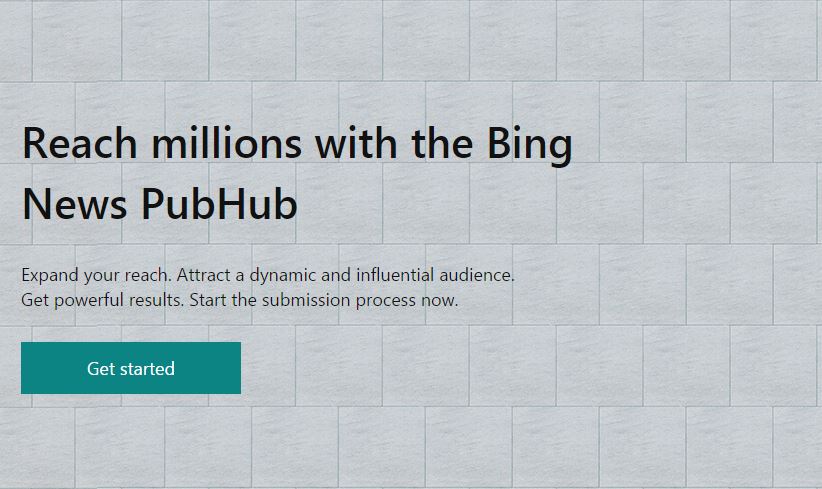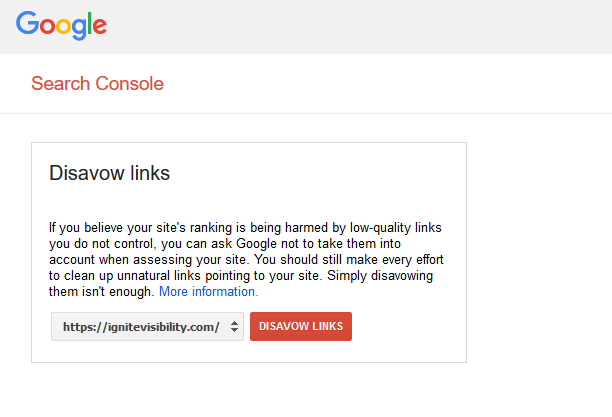
SEO Buzz: What Happened in SEO This Week 6.10.16
This week: Bing has a new toy, social signals still aren’t a ranking factor, and a new study shows promising results for AMP ads.
Here’s what happened this week in SEO.
Bing Releases PubHub for Publishers
This week, Bing released a new tool that enables publishers to get their work discovered by more readers.

Automatically distribute your content to millions of Windows, Outlook, and Bing users who get their news through Microsoft channels.
PubHub allows publishers to submit their news sites for distribution to Bing’s audience. It seems to be Bing’s version of Google News, but with less stringent requirements for inclusion.
According to Microsoft: “When publishers submit their content through the Bing Publisher Network, they’ve just expanded their reach significantly, giving their stories and outlets even greater exposure.”
Basically, if you’ve got a blog that reports news, you might qualify for inclusion in PubHub. Microsoft evaluates each site based on the following criteria:
- Newsworthiness
- Originality
- Readability
- Authority
If you think your site qualifies, get the ball rolling today. You might see a nice spike in your traffic.
Study: AMP Ads Lead to Greater Visibility and Higher CTRs
According to a new study, ads on AMP pages have far superior visibility and click-through rates than their non-AMP counterparts.
The research compared the ad performance on AMP and non-AMP mobile pages across 150 publishers representing various business sizes and geographic regions.

AMP pages make ads more readable and increase the click-through rates.
The results show promise for people who are early adopters of AMP.
Specifically:
- 80% of publishers received increased visibility rates for their ads on AMP pages compared to non-AMP pages.
- 90% of publishers saw improved CTRs for their ads on AMP pages vs non-AMP pages.
We’re still in the early stages of AMP, so it’s too early to call this a trend.
Google: No Plans to Include a Disavowed Links Testing Tool
If your site was ever hit with a manual penalty because of backlink spam, then you probably know that one of the best ways to overcome that penalty is by disavowing the garbage links.
Wouldn’t it be great if Google offered a tool to help you do that?

18 Ways to Avoid Google Penalties – Disavow Links
Yes, it would be.
Unfortunately, it looks like no such tool is forthcoming.
This week on Twitter, John Mueller fielded a question about that subject. In essence, he said that webmasters shouldn’t expect a testing tool for disavowed links.
“Luckily most sites don’t need to bother with that,” he tweeted, “so I don’t see that functionality changing significantly.”
Google Says It Again: No, We Don’t Use Social Signals As a Ranking Factor
Google has confirmed for the 417th time that social signals aren’t a ranking factor.
You might think that you can boost your great content to #1 in the SERPs for a specific keyword just because it got shared a million times on Facebook.
But, according to the Big G, that’s not going to make one bit of difference.
Way back in 2014, Google’s anti-spam cop Matt Cutts made a video (Cutt a video?) in which he said that no, social signals aren’t ranking factors.
Fast forward to a couple of years later, and Google is still putting the exclamation point on that statement.
This week on Twitter, somebody made the following observation: “Some controversy over whether Google takes social into account for SEO — perhaps Louis Gray will settle this in our next session!”
Gary Illyes answered it right away: “[T]he short version is, no, we don’t.”
Google: hreflang Won’t Affect Your Search Rank
As you probably know, you can use the hreflang markup to tell Google which URL should show in the SERPs based on location. That way, if your site uses multiple languages, the page showing the right language will be displayed based on the location of the person performing the search.

Image courtesy of Moz.com
Some people have been under the impression that hreflang affects search rank. In fact, it doesn’t.
Here’s what John Mueller had to say at a Google+ hangout this week:
Kind of think if you didn’t have those local pages would the dot-com pages rank in the local search results? And if they would rank then we’d like to swap at the URLs out against the appropriate local versions. So if if you have a website, I don’t know that, that’s targeting furniture and you have a UK website and it doesn’t show it all in in France for example, then just setting up at the href lang with completely new pages for France wouldn’t change anything because we wouldn’t have anything to swap out. It wouldn’t be that your UK page would be excessively ranking.